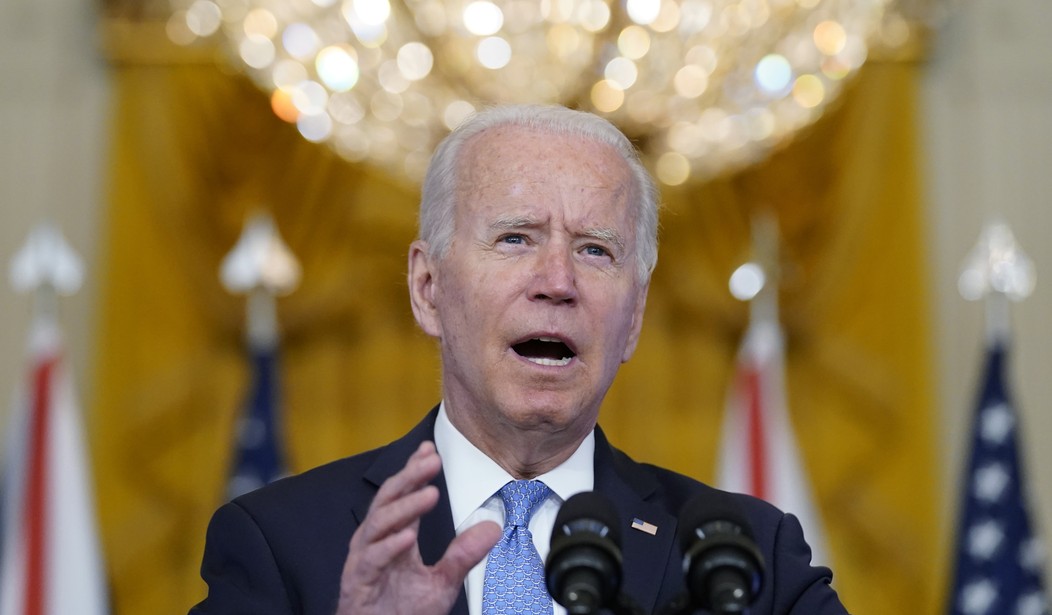As Joe Biden’s attempt at historic social engineering crashed and burned, so did his hopes of making his presidency as significant as those of Franklin Roosevelt and Lyndon Johnson. (Millard Fillmore is still within reach, of course.) This ambition was absurd from the start, as the normally incisive Megan McArdle argues at the Washington Post today. The failure of the Build Back Better bill should disabuse Biden of that dream, but McArdle chalks it up to unfortunate timing:
No matter how narrow or contingent their victories, all Democrats arrive at the White House nursing hopes of being the next Lyndon B. Johnson or FDR, while Republicans reckon to reincarnate Ronald Reagan. Almost all are disappointed because such political genius is rare, and because even those who have it usually come to office at the wrong time to make their political genius count.
Political genius matters — Jimmy Carter and George W. Bush illustrate what happens to presidents who meet a crisis without it. But Bill Clinton, whose charm and ambition might have vaulted him into the top tier, was instead doomed to the middle by an uneventful era.
Roosevelt was elected on the back of a global financial crisis, while John F. Kennedy’s assassination, and his opponent’s radical conservatism, propelled Johnson into office with landslide majorities. Clinton had modest majorities and a modest recession, neither of which gave him the scope for his massive health-care reform. When it comes to radical change, it’s not enough to solve some real problem. Unless that problem is pushed to the very top of voters’ minds by an acute crisis, the general electorate’s natural inertia will tend to swamp the revolutionary fervor of your base.
Nonetheless, politicians always forget how much timing matters.
Timing does matter, and McArdle’s point makes more sense as applied to Clinton. However, even with Clinton, there were other problems of Clinton’s own making, starting with his own deep character flaws, which ended up consuming most of his political capital in his second term. Clinton had his opportunities, and even made the most of some of them. Welfare reform brought the US welfare state closer to its original conception of a safety net than a way of life. The Good Friday Agreement ended three decades of terrorism in Northern Ireland. The Balkans wars allowed Clinton to marshal NATO power to reach settlements that ended centuries of conflict on Western terms. As for timing on that issue, imagine if those wars had taken place with Putin in the Kremlin twenty years later. Clinton may have been the closest thing to a consensus Great Democratic President since FDR had he just kept it in his pants.
McArdle also argues another good point, which is that every Republican president since Reagan wanted to match his historical importance in just the way Biden wanted to be another FDR. Unfortunately, while Reagan’s principles are a great basis for an ideological framework, the Cold War backdrop no longer exists. The policies Reagan put in place applied to his time, even if the principles themselves are timeless. Reagan was a giant as president, someone who steeped himself deeply in the philosophy and policy worlds to put together a strategic vision of a presidency, and had the ability to mostly succeed in carrying it out. No Republican presidential candidate since then has done that kind of hard work, even putting aside the communication skills Reagan brought to the table.
In contrast to Reagan, or even FDR and LBJ, Biden has been the antithesis of this model: an ideological fake, an intellectual dilettante, and a complete incompetent as an executive. But there is a more basic problem with Biden’s delusions of consequence: basic math. How did FDR and LBJ get their legislative agendas through Congress? They had the numbers in both chambers to do so:
- 1933 Congress: House 322/102 Dems, Senate 70/23 Dems
- 1963 Congress: House 295/140 Dems, Senate 68/32 Dems
- 1981 Congress (Reagan): House 269/164 Dems, Senate 54/46 GOP
Both FDR and LBJ had massive majorities in both chambers, enough to slam through nearly any policies they desired. Reagan had a more difficult environment in 1981, but he did have firm control of the Senate, which gave him some leverage over the House. His survival of a 1981 assassination attempt made Reagan even more popular, which also helped in pushing through his agenda, as well as a less ideological partisan framework in that era (regionality still mattered then, and the Blue Dogs were a significant factor in both chambers).
In contrast, Biden came into office with a 50/50 Senate, nearly a 50/50 House, and as the first president in long memory to win a first term while his party lost seats in the House. Forget historic “timing” and the lack of clear crises as an enabler of greatness; Biden’s problem was that he entirely misread his mandate and politically wrote checks that his party couldn’t possibly deliver. And, not to mention, that there just isn’t any greatness in Biden, which 50 years in Washington DC should have made clear to everyone.
Let’s not sugar-coat Biden’s failure in 2021. He didn’t fail because of the winds of fate. Biden failed because he embarked on a quixotic quest to puff himself up into something he clearly isn’t, and something the country didn’t want in the first place. Biden failed because he chose poorly and lacked the wit and self-awareness to recognize his limitations — both electoral and personal. Timing has little to do with this presidential failure.







Join the conversation as a VIP Member